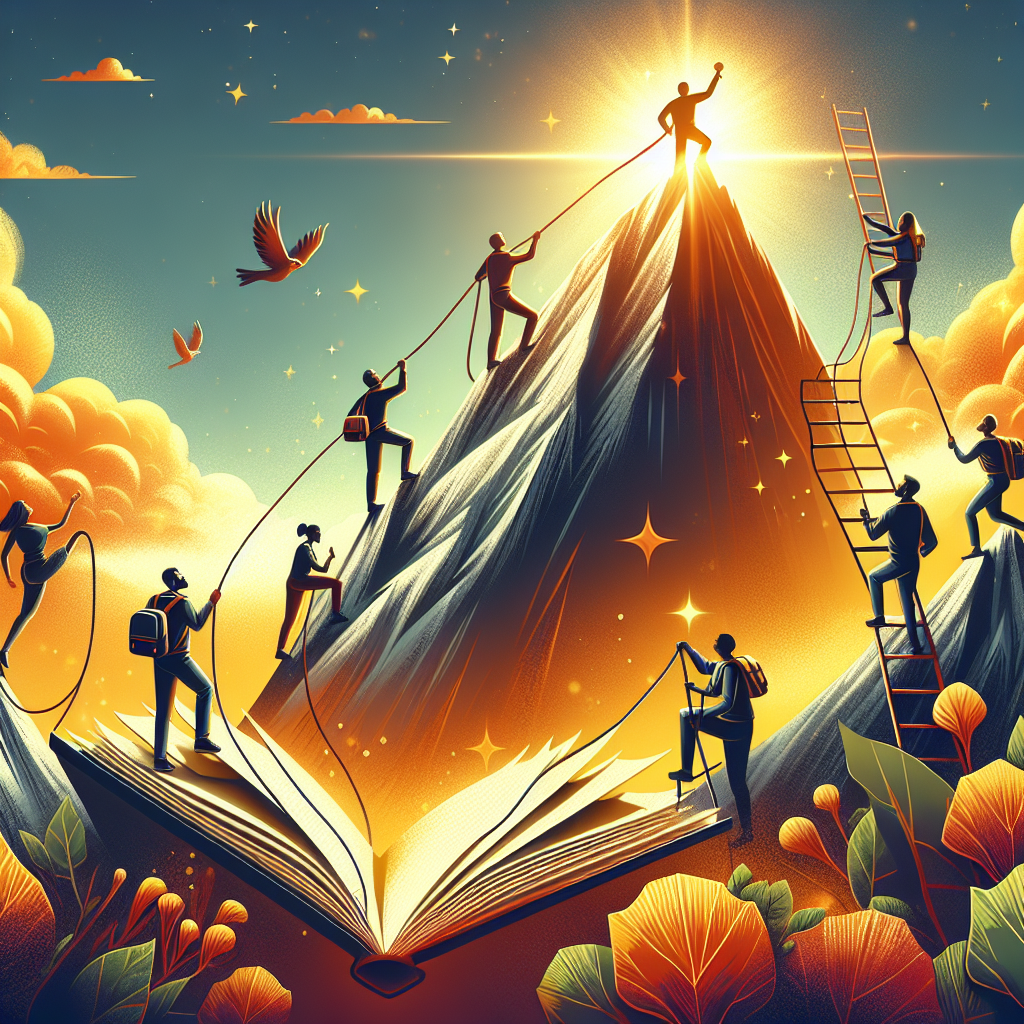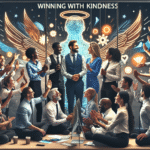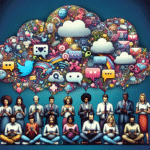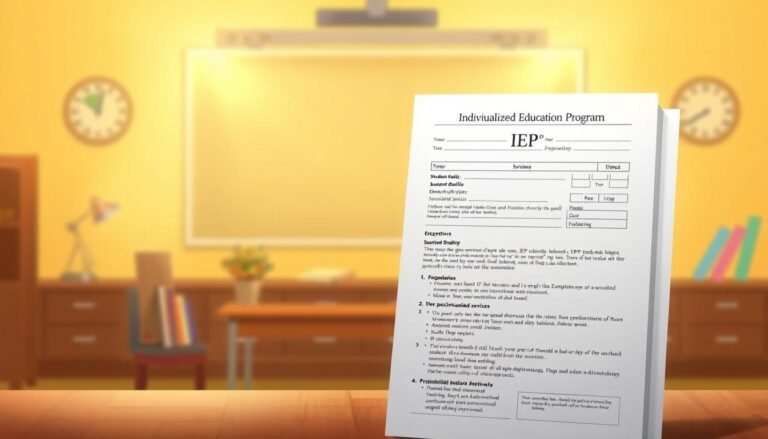
From Struggle to Success: Inspiring Stories of Individuals with Dyslexia
Introduction
Imagine facing an uphill battle daily, where fundamental tasks such as reading or writing feel like navigating a treacherous terrain. This is the reality for many individuals with dyslexia—a learning difference that impacts reading fluency and comprehension. Yet, the essence of the human spirit is often illuminated in the brightest stories of perseverance and triumph. Today, we delve into "From Struggle to Success: Inspiring Stories of Individuals with Dyslexia," showcasing how these remarkable individuals overcame obstacles to achieve their dreams, proving that struggle can indeed lead to profound success.
Dyslexia does not define individuals; their journeys do. With creativity, resilience, and the support of family and educators, countless individuals have transformed their disabilities into unique advantages. Through their stories, we will explore insights, key realities, and inspirational case studies, illuminating the paths that lead from struggle to success.
Understanding Dyslexia
Before we dive into the stories, it’s crucial to understand what dyslexia entails. Dyslexia is a specific learning disability that is neurological in origin. People with dyslexia may struggle with accurate and/or fluent word recognition and may experience difficulties with spelling and decoding. Despite these challenges, dyslexia can foster exceptional problem-solving skills, creativity, and versatility, which have proven to be invaluable across various fields.
The Myth of the “Intelligence” Connection
It’s a common misconception that dyslexia is associated with lower intelligence. On the contrary, many individuals with dyslexia are highly intelligent and capable. They simply navigate the world differently. This perspective shift is essential as we explore the journeys of those who have traversed the road from struggle to success.
Inspirational Stories of Triumph
1. Richard Branson: The Entrepreneurial Spirit
One of the most successful entrepreneurs in the world, Richard Branson, is a well-documented advocate for dyslexia. Growing up, he struggled with reading and writing, but instead of allowing this to hold him back, he founded the Virgin Group, which encompasses over 40 companies. Branson emphasizes that dyslexia forced him to become a more creative thinker and problem solver. His story serves as a testament to the idea that the skills honed through adversity can lead to incredible success.
Relevance and Analysis
Branson’s journey from struggle to success illustrates how embracing one’s differences can lead to extraordinary achievements. His story highlights the importance of resilience and creativity, two traits that are often amplified in individuals with dyslexia.
2. Cher: The Icon Who Defied the Odds
Cher, a global superstar in music and film, also battles dyslexia. Despite facing challenges in traditional education, she found her voice in the performing arts. Cher’s ability to express herself through music and acting allowed her to harness her creativity, leading to an illustrious career. She often speaks on the importance of believing in oneself, despite the odds.
Relevance and Analysis
Cher’s narrative showcases how passion combined with perseverance can inspire change. Her success reaffirms that pursuing one’s passions—regardless of the hurdles—can lead to fulfillment and recognition.
3. Anderson Cooper: A Legacy of Journalism
Anderson Cooper, the acclaimed journalist and television personality, has spoken candidly about his struggles with dyslexia. Cooper overcame his early challenges through determination and hard work, becoming one of the most respected figures in journalism today. His story is not just about overcoming adversity but also about championing those with learning differences.
Relevance and Analysis
Cooper’s journey emphasizes the power of advocacy and the importance of representation. His role in the media inspires many individuals with dyslexia to pursue their dreams, demonstrating that success is attainable.
4. Agatha Christie: The Queen of Mystery
The famed author Agatha Christie, known for her intricate plots and memorable characters, faced significant challenges due to her dyslexia throughout her education. Despite struggling with writing in her early years, she published 66 detective novels and is one of the best-selling authors of all time. Christie’s determination to write stories that captivated readers showcases how passion can break through barriers.
Relevance and Analysis
Agatha Christie’s tale encourages individuals to pursue their passion relentlessly. Her legacy illustrates that success can emerge from the most challenging beginnings when one is committed to their craft.
The Power of Support Systems
Individuals with dyslexia often thrive with strong support systems. Family, educators, and mentors play critical roles in fostering confidence and resilience. Special programs, tutoring, and accommodations can also significantly aid those with dyslexia, underscoring the importance of understanding and patience.
Case Study: The Role of Educational Programs
A longitudinal study conducted by the National Center for Learning Disabilities (NCLD) explored the impact of specialized educational programs on students with dyslexia. The results demonstrated that students receiving tailored support showed marked improvement in reading skills and overall academic performance compared to those who did not. This highlights the importance of early intervention and targeted learning strategies in guiding individuals from struggle to success.
| Support System | Impact on Success |
|---|---|
| Specialized Tutoring | Enhanced reading and comprehension skills |
| Family Support | Increased confidence and motivation |
| Mentorship | Guidance and inspiration, enhancing career prospects |
| Collaborative Learning | Improved social skills and teamwork abilities |
Strategies for Success
While every journey is unique, several strategies have proven effective for individuals with dyslexia. These strategies can help transform struggles into pathways to success:
Embrace Technology: Utilize tools like audiobooks, text-to-speech software, and speech recognition systems to facilitate learning.
Seek Professional Help: Engage with professionals who understand dyslexia and can provide tailored assistance.
Join Support Groups: Interacting with others who share similar experiences can foster a sense of community and belonging.
Focus on Strengths: Leverage unique strengths and talents, turning perceived weaknesses into advantages.
- Practice Mindfulness: Techniques like mindfulness and resilience training can enhance emotional well-being and coping mechanisms.
Conclusion
The stories of individuals who have journeyed "From Struggle to Success: Inspiring Stories of Individuals with Dyslexia" serve as powerful reminders of the triumph of the human spirit. These individuals have faced formidable challenges, yet they have turned their struggles into stepping stones toward significant accomplishments.
As we reflect on the resilience, creativity, and determination displayed in these narratives, let us remember that challenges can lead to extraordinary growth and success. For those currently navigating the complexities of dyslexia, let these stories inspire you to embrace your unique journey and pursue your passions relentlessly.
FAQs
What is dyslexia?
- Dyslexia is a specific learning disability that impacts reading, spelling, and sometimes writing abilities.
Can dyslexia affect intelligence?
- No, dyslexia does not correlate with lower intelligence. Many individuals with dyslexia are highly intelligent and capable.
What strategies can help someone with dyslexia?
- Strategies include using technology, seeking professional help, focusing on strengths, and joining support groups.
Is there a cure for dyslexia?
- There is no cure for dyslexia, but with effective strategies and accommodations, individuals can learn to manage their symptoms successfully.
How can parents support their dyslexic child?
- Parents can support their children by providing emotional support, seeking specialized tutoring, and advocating for their needs in an educational context.
- Are there famous people with dyslexia?
- Yes, many successful individuals like Richard Branson, Cher, and Anderson Cooper have openly discussed their experiences with dyslexia.
Through these combined insights, we can continue to create a world where individuals with dyslexia not only face their struggles head-on but also emerge victorious, inspiring others on their journeys. Let each story be a beacon of hope and a reminder that success is achievable regardless of the challenges one may face.
















